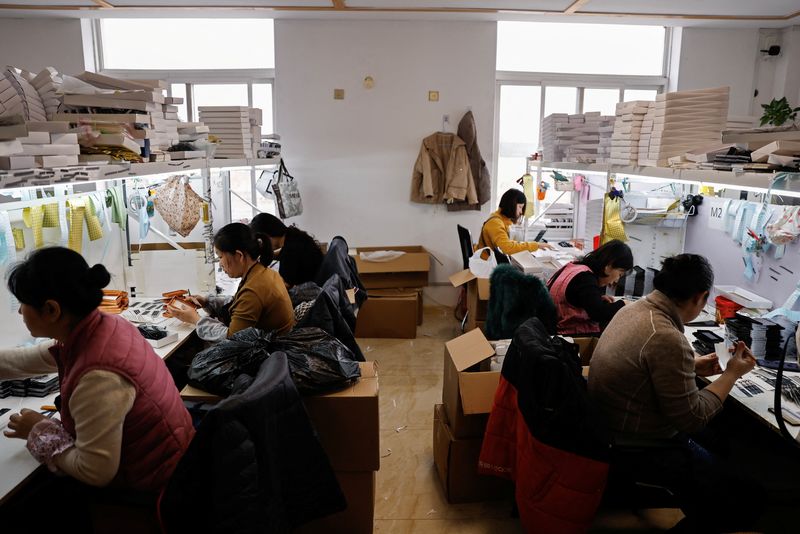By Jamie McGeever
(Reuters) - A look at the day ahead in Asian markets.
Trading volume and activity across Asia on Monday will be among the lightest this year owing to the U.S. and UK public holidays, but markets are open and there is no shortage of issues for investors to chew on.
The economic calendar sees the release of Chinese industrial profits figures for April and trade data from Hong Kong, while South Korea hosts a trilateral meeting in Seoul with China and Japan.
With the world's two biggest FX trading centers London and New York both closed, yen traders may be on intervention alert. Japan's last two suspected bouts of yen-buying action recently came in extremely illiquid hours of the global day, one of which was May 1 when many countries' markets were shut.
The dollar is back up at 157.00 yen, and the latest Commodity Futures Trading Commission figures show that after three weeks of reducing short yen positions, speculators are now loading up on them again.
Could Tokyo be tempted to catch the market off guard again?
While trading volume will be thin in Asia on Monday, the global investment backdrop remains constructive. Although bond yields are rising and central banks' are leaning increasingly hawkish, markets remain buoyant.
In large part, this is being led by U.S. developments - strong earnings, solid growth and extremely subdued volatility. Indeed, a key driver of the bullish momentum globally is the low level of volatility.
The Chinese investment picture, of course, is less rosy, and perhaps not coincidentally, China-Taiwan tensions are rising.
Downward pressure on the yuan's exchange rate appears to be building again. The spot yuan just had its biggest weekly fall against the dollar since mid-March, and the central bank's daily dollar/yuan fixing rate on Friday was above 7.1100 for the first time since January.
Foreign direct investment into China in January-April plunged nearly 28% from the same period last year, and Goldman Sachs analysts estimate that FX outflows in April accelerated to $86 billion from a $39 billion outflow in March.
While many benchmark equity indexes around the world have shot to new highs recently, and Hong Kong's Hang Seng rebounded as much as 20%, Chinese stocks have found the going much tougher.
And China's economic surprises index has continued to inch lower in recent weeks too - on Friday it slipped to its lowest level since February 8.
All that comes despite Beijing taking fresh steps to address the property sector crisis. The week ahead is a quiet one in terms of Chinese economic indicators, but April industrial profits on Monday is a big one for investors.
Profits fell in March, complementing a slew of economic indicators for the month such as retail sales and industrial output that pointed to frail domestic demand.
Here are key developments that could provide more direction to markets on Monday:
- South Korea, Japan, China trilateral meeting

- China industrial profits (April)
- Hong Kong trade (April)